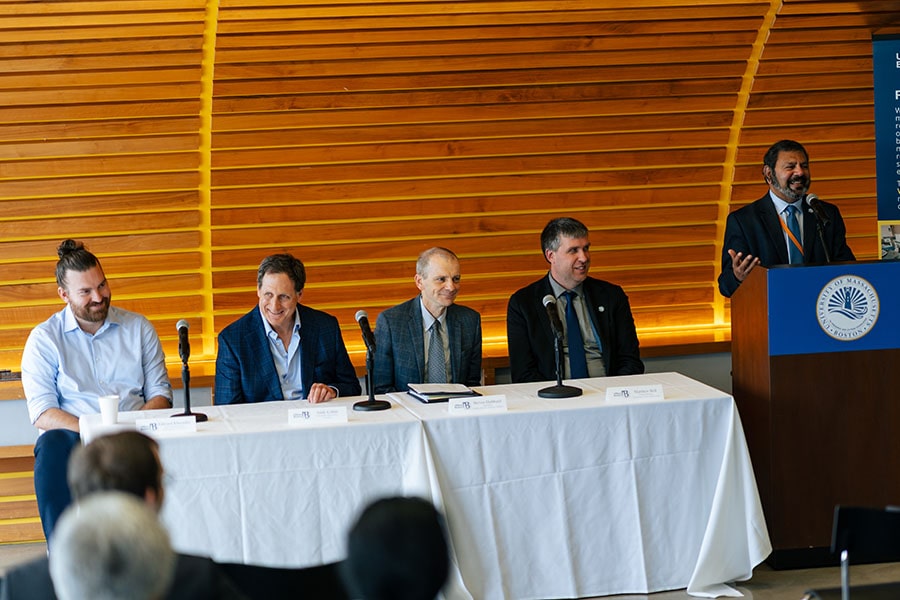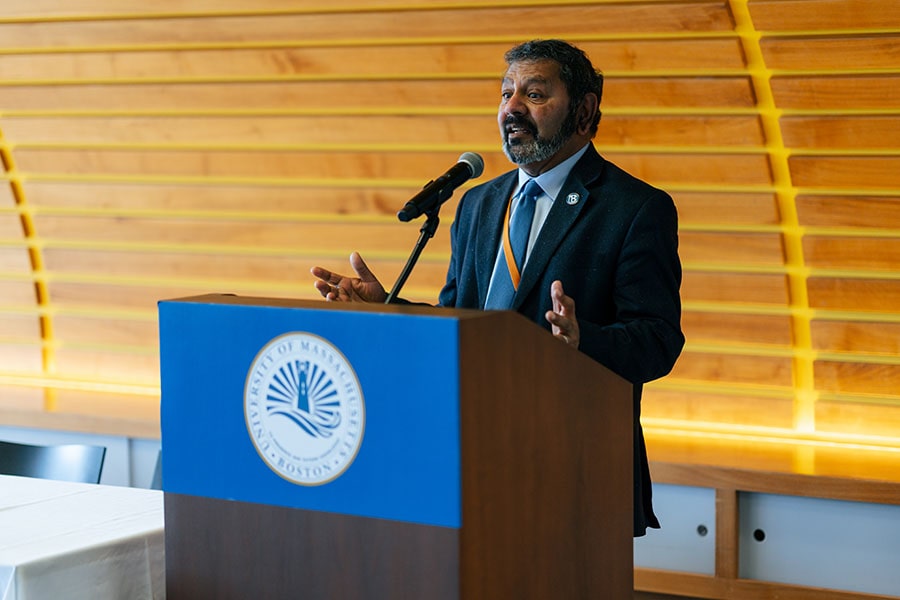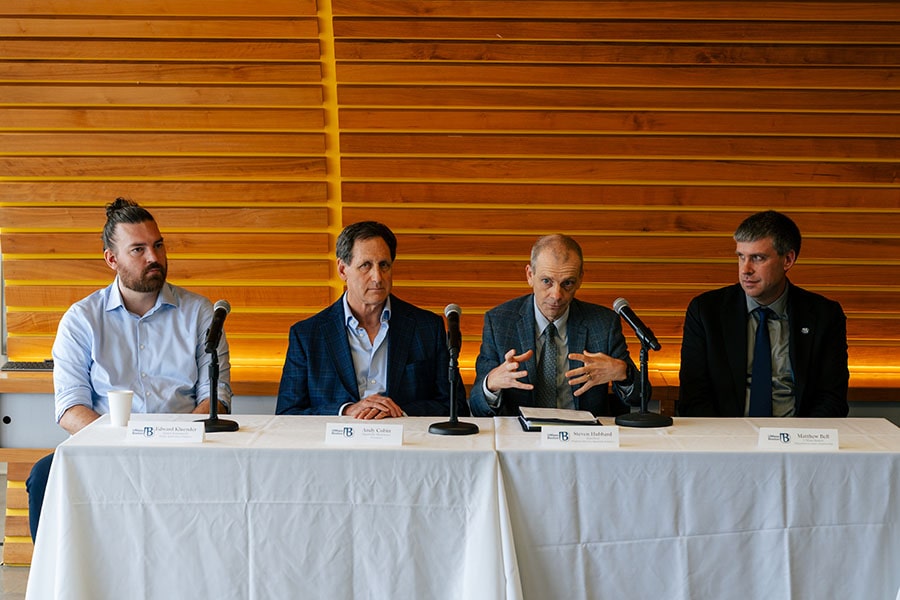- Home
- News
- Recent News
- Quantum Experts Discuss Impact of Investment on Students, Science and Businesses
Quantum Experts Discuss Impact of Investment on Students, Science and Businesses
Following the announcement that UMass Boston will be receiving a $3.8M grant to develop and commercialize quantum hardware, expert panelists discussed the positive impact that investment in quantum research can have.

As UMass Boston prepares to expand its quantum research capabilities, thanks to a new award from the Massachusetts Technology Collaborative (MassTech) and the Massachusetts Executive Office of Economic Development, experts see implications for local quantum industry beyond the bounds of campus. On the afternoon of October 8, following presentations from UMass Boston Chancellor Marcelo Suárez-Orozco and Lt. Governor of Massachusetts Kim Driscol, quantum business leaders and researchers spoke about the economic and research opportunities generated by quantum investment in Massachusetts.
Bala Sundaram, the vice provost for research strategic initiatives at UMass Boston, moderated the roundtable discussion. 2025 marks the hundredth anniversary of the discovery of quantum mechanics—and with this centenary celebration, Sundaram said, “researchers are poised to make groundbreaking new discoveries. It’s really interesting when we’re looking at what the next hundred years—or the next twenty years, if you like—of the second quantum revolution is going to bring.”

Steven Hubbard, the program director of the Quantum Initiative at MassTech, began by discussing the rapid impact of quantum research in recent years. MassTech’s approach to investment in quantum technology supports access to resources for quantum researchers, acceleration of growth in the supply chain, and a skilled workforce ready to contribute to both quantum research and manufacturing. “Those are the three prongs where we think a public investment can really enable the rich R&D infrastructure that we've already got—this world-leading capacity that we have in the Commonwealth,” Hubbard said.
Investments like these have already made local quantum research more attractive for companies like Quantum Microwave, where Andy Cobin serves as president. Quantum Microwave provides cryogenic components to companies that need microwave components that can operate at ultra-cold temperatures to study and build quantum devices. “Our goal was to be the Amazon of quantum computing,” Cobin said.
As Matthew Bell, chair of the Engineering Department at UMass Boston, explained, quantum computing requires extremely low temperatures for the best efficiency. In the earliest days of quantum research, scientists had to rely on microwave components designed to operate at room temperature because that was only what was available.
Seeing the need for more readily available cryogenic components, Quantum Microwave stepped up to provide them, enabling many other researchers to accelerate their work. Now, with the increased demand for their products, Quantum Microwave has moved into a former cigar factory in Hatfield, Mass., and is recruiting technicians and engineers from the nearby technical schools.

Edward Kluender, an application scientist at the Waltham location of Zurich Instruments, brought the perspective of an international, established company to the table. “We’re really striving to be scientists for scientists,” he said, “and working closely with key collaborators and partners in the field. Because there’s no way that one company, or one institution, and definitely not one person, could know the entirety of a quantum ecosystem.”
His comments echoed the other panelists’ cooperative spirit: Cobin mentioned that his company relied on UMass Boston’s facilities and experts to test their cryogenic components during development. Bell noted that MassTech’s initial 2021 investment in UMass Boston’s quantum research supported these collaborations. It also allowed UMass Boston to offer much-needed training to students who might eventually work at quantum companies.
“Our number one priority is training students,” Bell said. “We work for quantum workforce development, trying to train the next generation of quantum engineers and technicians.”
One of these former students was listening from the audience: Chris Sutton G’25, an early-career scientist who worked under Bell while pursuing his master’s degree in applied physics, is thrilled about MassTech’s reinvestment. At UMass Boston, Sutton says, “I learned how to translate the skills that I developed in the trades into an entirely different domain.”
The new funding, Sutton says, has established a pathway for those interested in quantum research to get involved in this exciting new field. “We have really clear support from the state…. They’ve been very purposeful about that. It’s what’s needed if you want to make a big change.”